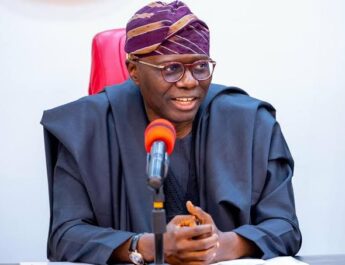The House of Representatives has issued a stark warning to the Federal Government, asserting that Nigerians may resort to revolt if immediate steps are not taken to tackle the growing insecurity across the country.
During plenary, lawmakers from regions most affected by insurgency and attacks from herdsmen voiced their criticisms of the Presidency, accusing it of failing to adequately address the crisis despite reportedly spending over ₦19.7 trillion on security between 2015 and 2019. The debate was sparked by a motion of urgent public importance put forward by Ahmed Satomi following a fire at the Giwa Barracks armoury and fresh attacks on military installations in Borno and Yobe states. The session grew emotional, with many lawmakers expressing their deep concerns about the government’s inaction.
Yusuf Gagdi (APC, Plateau) warned that elected officials could become targets for their constituents if the insecurity continues. “Until the government responds with real action, not just statements, no member of this Assembly is safe. The people may come after us just as they do criminals,” he cautioned.
Ahmed Jaha (APC, Borno) described the dire situation in his constituency, reporting that “Ten farmers were slaughtered in Pulka, 14 in Chibok, and military personnel were killed in Izge and Kampu. Boko Haram is using weaponized drones. The army is outgunned and undermanned. I’ve witnessed it firsthand.”
Jaha urged the House to carry out proper oversight, warning that Boko Haram is resurging with more sophisticated weaponry. “They are back and worse than ever. If we don’t act now, we risk returning to the dark days when 22 of 27 local governments in Borno were under insurgent control.”
Zainab Gimba (APC, Borno) confirmed reports of foreign fighters and the use of drones in recent attacks. She shared her personal experience during a Boko Haram ambush on a multinational base in her constituency, where 20 soldiers were killed. “The commander told me many of the insurgents were white men. This is no longer just local terrorism.”
She also raised concerns about the placement of military bases in densely populated areas, citing the recent fire at Giwa Barracks in Maiduguri. “Military bases should not be located in city centers. We are politicizing people’s lives,” she stated.
Gimba further emphasized the growing regional security threat following the departure of Niger, Mali, and Burkina Faso from ECOWAS, warning that the lack of coordination among neighboring states could exacerbate the crisis.
Shettima Ali (APC, Yobe) advocated for legislative action that would enable citizens to defend themselves, stating, “Our security forces are insufficient and unfamiliar with the terrain. Let’s pass a law that empowers citizens to protect themselves.”
Babajimi Benson (APC, Lagos) criticized the government’s security spending, arguing that it has not yielded tangible results. “Drastic measures are needed. We’ve spent too much without seeing progress,” he lamented.
In response, the House resolved to investigate the Giwa Barracks fire, review security protocols at military installations, strengthen operations in Borno and Yobe, and offer support to the families of affected soldiers. Additionally, it instructed the Committees on Army, Defence, and National Security to report back within weeks.
Meanwhile, Senate President Godswill Akpabio expressed grave concern over the escalating insecurity and economic hardship in the country. In his address during the resumption of plenary, he warned that the patience of Nigerians was wearing thin.
Akpabio stressed the urgency of legislative action, stating, “Our people look to us not for rhetoric, but for rescue. These challenges require sacrifice, discipline, and unity. No test should find us wanting.”
He acknowledged the insecurity in the South-East and North-West, the farmer-herder crises in the North-Central, and unresolved issues of equity in the South-South.
“The rising cost of living, instability in the energy sector, and persistent insecurity must be addressed. While the executive is doing its part, we must complement that effort with strong legislative action,” Akpabio said.
He concluded by urging senators to rise above partisanship and work together to provide meaningful solutions. “The Nigerian people are watching. The world is watching. We must lead with integrity, patriotism, and a renewed commitment to peace and progress.”




